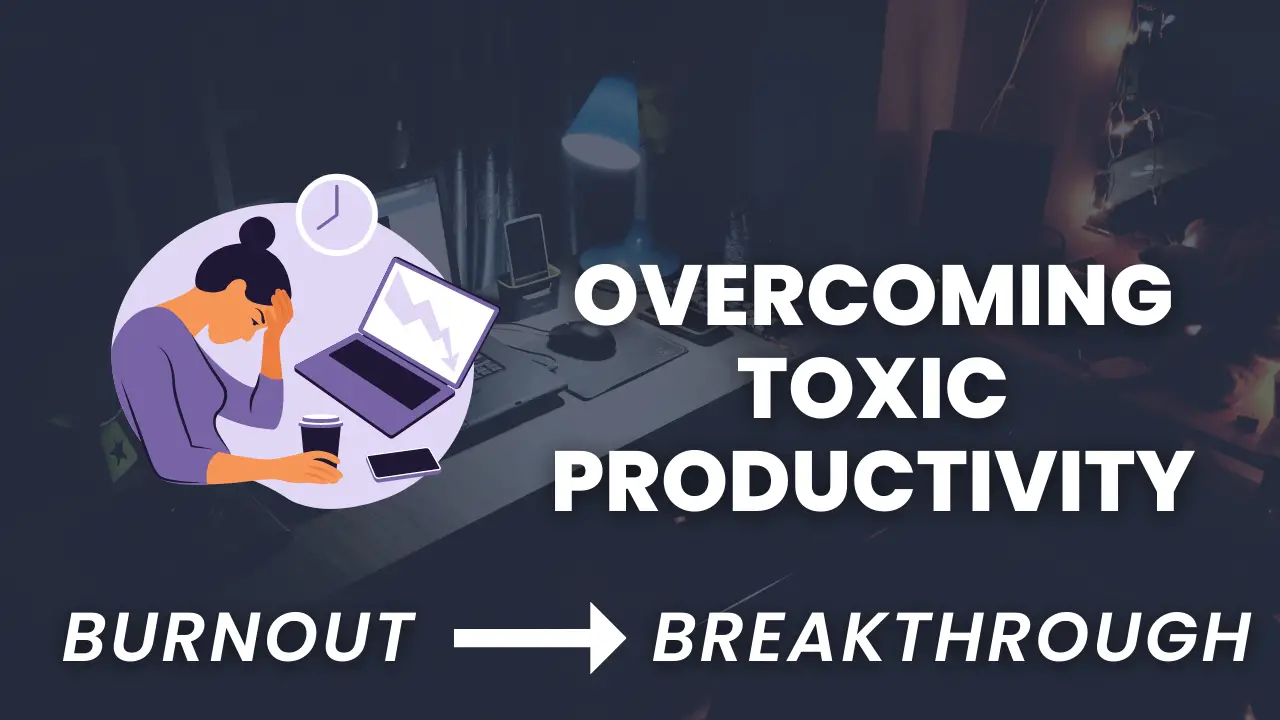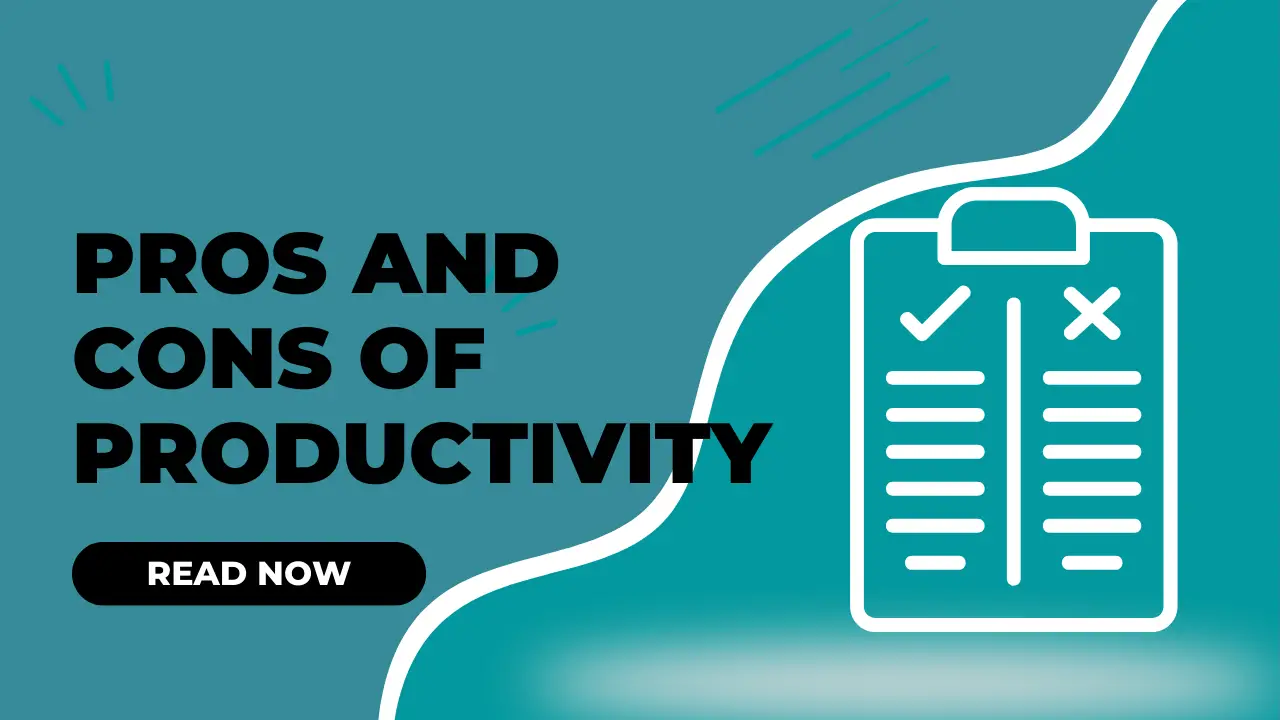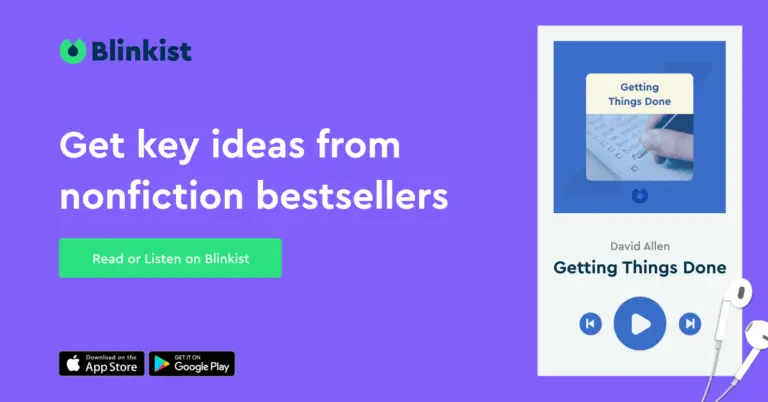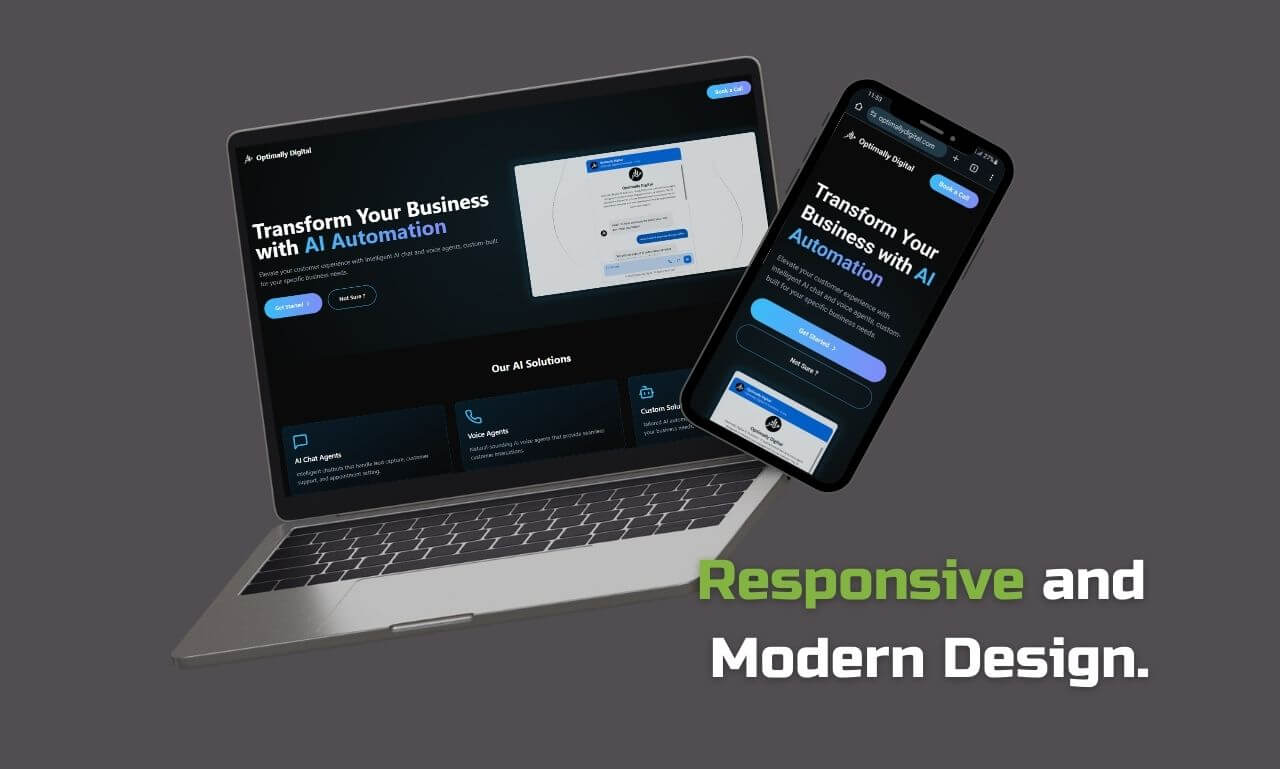Getting stuck in the flow of work or pressure is pretty common these days. But the problem is when toxicity enters into your workflow and does more harm than good. Now what exactly is the trap of toxic productivity and how do we break it?
Toxic productivity refers to the overwhelming amount of pressure over time on one’s mental or physical health which causes burnouts, anxiety and perfectionism. This can be avoided by following basic principles like separating work from personality, positive reinforcements and the 80/20 principle.
Let’s dive deeper into the solution and break the trap.
Difference Between Work and Personality

Often work is confused with one’s personality.
How so?
Here’s an example. A Doctor may make the mistake of assuming that he is in full control of his patient’s life. While that may appear to be true but as you think more about it, the less sense it makes.
In an operating room the doctor plays God and for the better of his patient’s health. But he/she can’t save everyone that walks into that room.
Just because the doctor was assigned or confused to portray God doesn’t actually make him/her one. They can still make mistakes and that costs lives.
As a human they can only do so much and mourning or taking the burden of those lives on their conscience is a classic way of confusing their work for their personality.
A doctor’s job is to save lives but he/she as a person DOES NOT hold responsibility for the survival of their patient. It’s just their job.
In a similar context you should never confuse your role in a job for your identity. This may seem counterproductive and a way to escape accountability.
But, if you think about it!
It’s a necessary step to grow and do our job better without any unnecessary baggage.
Positive ‘What If’ Reinforcements

Turning the negative what if’s into positive ones is a really powerful move.
Don’t believe us?
Here’s why you should…
According to B. F. Skinner’s operant conditioning theory positive reinforcements work by creating a reward mechanism for every desired behavior so that it’s repeated in the future more often.
Similarly, bringing the reward first in terms of words or rather affirmations can work the same. They can bring desired behavior and results more often in our lives.
If you want to know more about affirmations and their effect on our lives then we recommend you check out a post we recently wrote on How Productivity Affirmations Can Help You Get More Done?
Moreover…
We are talking about making small tweaks like saying “What if I get the job” or “What if my teacher likes my explanation”.
All we ask is for you to sprinkle these what if’s throughout your day and act on them by taking the small risks as they can go a long way.
The 80-20 Rule

Also known as the pareto principle states that 80% of output comes from just 20% of the input.
This means that 20% of the essential work will get you 80% there. But this essential work is often avoided or put to last resorts rather than prioritizing, and getting it over with.
But why are we talking about this rule in the first place?
Let us boil it down for you…
Toxic productivity is often encountered when the effort going into work is far surpassing the results that we get from those efforts. This leads to dissatisfaction and thus more effort is put into work with the hopes of fixing this issue. But this approach is often canceled out by the negative effects of having a burnout.
Working without pause and care of self-health can really cause long-term issues and to tackle this, the concept of 80/20 rule was brought in.
When you’re achieving so much of your work with less effort it starts to feel natural again, and the chances of you overdoing something drastically decreases. And so does the chance of having a burnout and tossing out an entire week or even month of progress in some cases.
Take Rests

In today’s workaholic driven environment rest periods are sometimes considered as a waste of time.
We’d be telling this for the thousandth time but we still preach that rests are extremely important for reenergizing the brain, fixing the mood, getting back in the flow and landing some fresh perspective into work.
But how do we incorporate them into our workflow?
We’re glad you asked…
Two-words: Pomodoro Timers.
They are great work based timers in which you get 25 minutes of work session and 5 minutes of rest period.
Now this may seem unnecessary and tedious but if you build this good habit from the start it will only add up, as in the end consistency is all that matters. Pomodoro timers are backed with logic and facts to work as it is a highly effective and disciplined way to go about your work.
Wrapping Up!

Avoiding perfectionism and burnouts can be a real hassle while striving for productivity but it’s clearly not impossible as there are people out there who are highly consistent with their work.
Be it actors pushing out 4 movies a year or a student who is an all in one and manages everything in life with ease thereby removing the last 3 letters. In any case the trap of toxicity is always gonna be there and you may fall for it if you aren’t self-evaluating yourself from time to time.
In case you wanna dive even deeper into how toxic productivity lures people in and what are its possible dangers, you should definitely give Toxic Productivity: An Overview a read.
Being self-aware, knowing the difference between work and one’s identity, positive reinforcements, effective principles and regular rest periods are enough to pull you out of the vicious cycle of toxicity and break it.











Leave a Reply